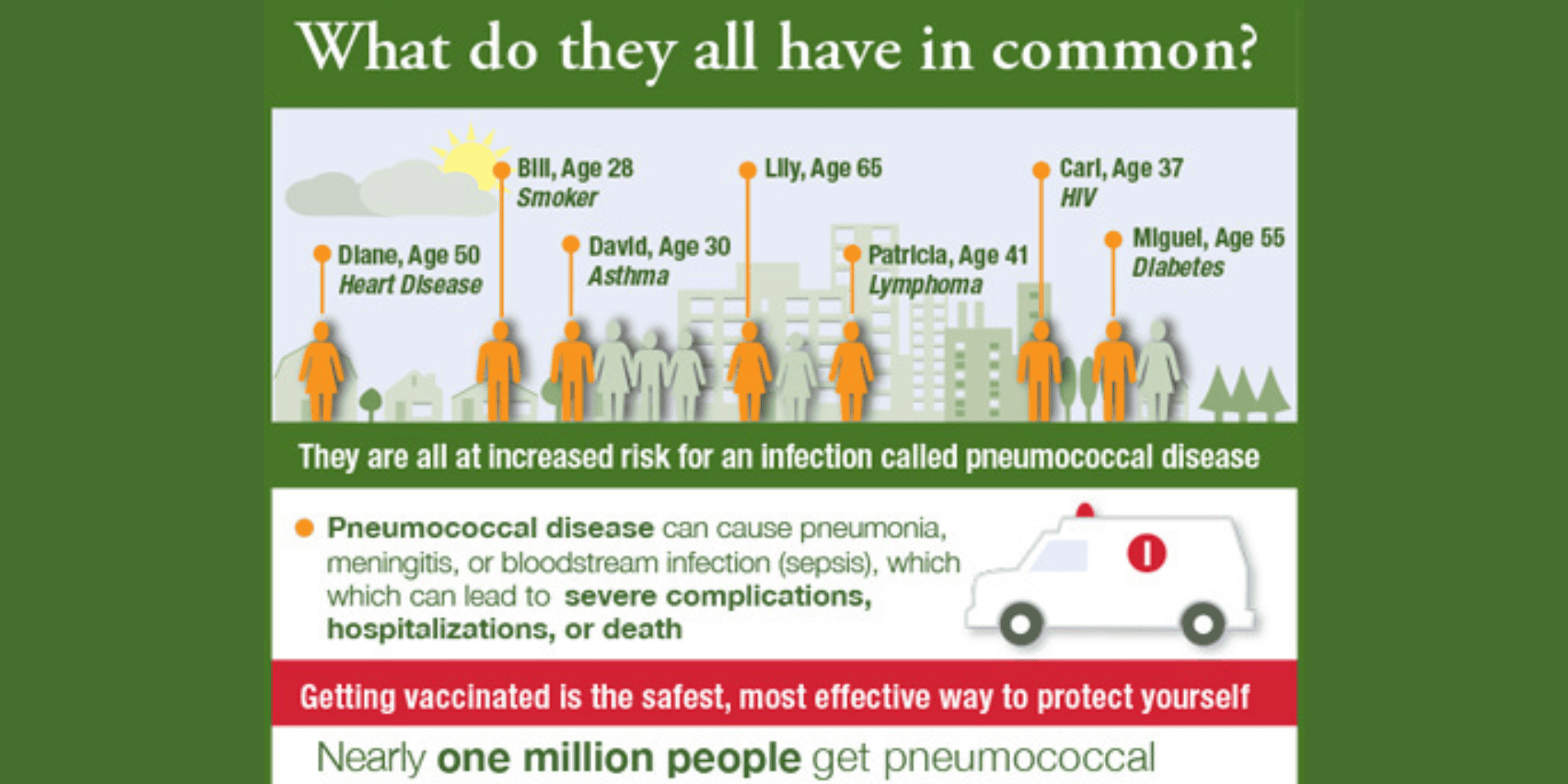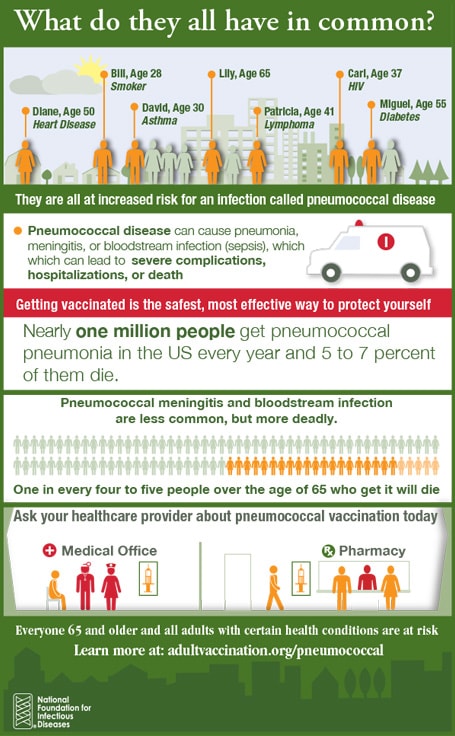
February is American Heart Month, an annual observance highlighting the importance of living heart healthy. The month is dedicated to increasing awareness about prevention of heart disease and emphasizing the importance of controlling risk factors, such as diet and physical activity, to help individuals with heart disease stay healthy. The National Foundation for Infectious Diseases (NFID) supports American Health Month as a reminder to promote heart healthy behaviors and remind patients with heart disease about the importance of staying up-to-date with recommended vaccines – especially flu and pneumococcal vaccines – due to their increased risk of becoming ill with serious complications.
Pneumococcal Disease Only 64.7% of those age 65 years and older, and 18.5% of younger adults with one or more chronic conditions indicated, have been vaccinated against pneumococcal disease based on current immunization recommendations. Two types of pneumococcal vaccine are currently recommended in the US for adults: PCV13 (13-valent pneumococcal conjugate vaccine) and PPSV23 (23-valent pneumococcal polysaccharide vaccine), and recommendations for their use vary by age and risk factors, but every adult with chronic heart disease should be vaccinated against pneumococcal disease.
Visit Pneumococcal Vaccination Resources for additional information and guidance regarding the use of PCV13 and PPSV23. Free downloadable tools and resources include: Call to Action: Preventing Pneumococcal Disease in US Adults with Chronic Conditions, posters, and fact sheets for patients with risk conditions such as heart disease.
Influenza (Flu) Adults with heart disease are at high risk for developing serious complications from influenza. Many adults with heart disease are unaware of the risks associated with flu:
- Flu can increase the risk of heart attack
- Last season, 37% of adults hospitalized with flu had heart disease
- Findings show that the risk of having a heart attack or stroke doubles the week following a respiratory infection such as flu
- Death from flu is more common among adults with heart disease
Tdap (Tetanus, Diphtheria, and Pertussis) Tdap is a combination vaccine that protects against tetanus, diphtheria, and pertussis (also known as whooping cough). All adults age 19 to 64 years need a one-time Tdap booster vaccine. Tdap is especially important for healthcare professionals and anyone who is in close contact with infants younger than 12 months. Additionally, pregnant women should get a dose of Tdap during every pregnancy, to protect the newborn from pertussis.
American Heart Month is a great time to remind your patients about the benefits of vaccination to help them live heart healthy. Share this table with patients who have heart disease. For additional information about recommended vaccines for adults, visit adultvaccination.org.
Help support American Heart Month. To join the conversation, follow us on Twitter (@nfidvaccines) using the hashtag #HeartHealth, like us on Facebook, and join the NFID Linkedin Group.
Related Posts

News Round-Up: Infectious Disease Threats
According to NFID website poll, there are several worrisome infectious disease threats. Read recent news on topics of greatest concern, including avian influenza (bird flu), measles, and respiratory syncytial virus (RSV) …

Vaccines and Heart Health: A Vital Connection
Heart disease can increase the risk of serious or fatal complications from respiratory diseases including COVID-19, flu, and RSV

Harnessing the Power of Local Data
NFID dashboard aims to empower stakeholders with hyperlocal data to increase US adult respiratory vaccine uptake

